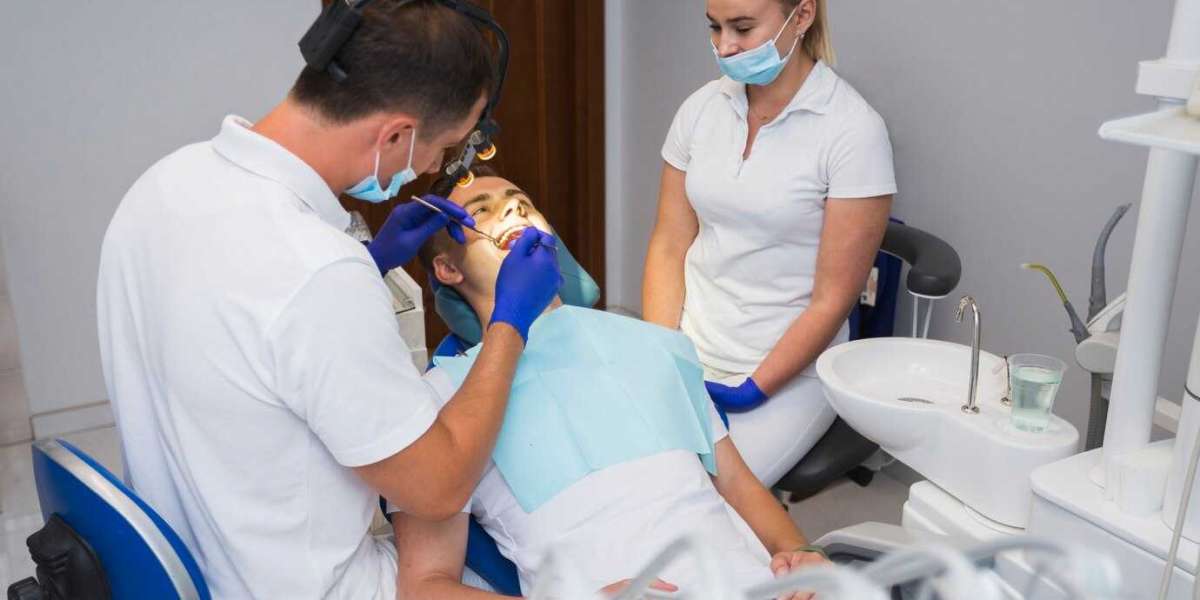Emergency dental situations can arise unexpectedly, causing distress and discomfort. Whether it's a sudden toothache, a knocked-out tooth, or a broken dental appliance, knowing how to respond swiftly can make all the difference in preserving oral health and alleviating pain. In this guide, we'll explore the ins and outs of emergency dental care, equipping you with the knowledge and resources needed to navigate these critical situations with confidence.
Introduction to Emergency Dental Care
Dental emergencies encompass a range of situations that require immediate attention from a dental professional. From severe toothaches to traumatic injuries, these emergencies demand prompt action to prevent further damage and relieve pain. Understanding the nature of dental emergencies and being prepared to respond effectively can help mitigate potential complications.
Recognizing Dental Emergencies
Recognizing the signs and symptoms of a dental emergency is crucial for prompt intervention. Severe pain, swelling, bleeding, and trauma to the teeth or soft tissues are common indicators of urgent dental issues. It's essential to distinguish between urgent situations that require immediate care and non-urgent issues that can wait for regular dental appointments.
Immediate Actions to Take
In the event of a dental emergency, taking immediate first aid measures can provide temporary relief and minimize risks. Rinsing the mouth with warm water, applying cold compresses to reduce swelling, and preserving knocked-out teeth in milk or saline solution are some initial steps to take before seeking professional help.
Finding Emergency Dental Care Providers
Locating emergency dental care providers in your area is crucial for timely intervention. Local dental clinics, hospitals with emergency dental services, and dental hotlines are valuable resources for accessing urgent care. Consider factors such as proximity, availability, and reputation when choosing a provider.
Preparing for Dental Emergencies
Preparation is key to handling dental emergencies effectively. Assembling an emergency dental kit with essentials like gauze, pain relievers, and a dental mirror can be invaluable in urgent situations. Familiarize yourself with your dental insurance coverage and emergency protocols to streamline the process when emergencies arise.
Navigating the Treatment Process
Understanding what to expect during emergency dental visits can alleviate anxiety and uncertainty. Dental professionals will conduct thorough evaluations, administer appropriate treatments, and provide aftercare instructions to ensure optimal outcomes. Common treatments for dental emergencies include root canal therapy, dental extractions, and temporary restorations.
Costs and Payment Options
The financial aspects of emergency dental care can be a concern for many individuals. It's essential to inquire about treatment costs, payment options, and available assistance programs beforehand to avoid unexpected expenses. Insurance coverage, flexible payment plans, and community resources can help alleviate financial burdens associated with emergency dental care.
Preventing Dental Emergencies
While some dental emergencies are unavoidable, adopting preventive measures can minimize risks and promote long-term oral health. Practicing good oral hygiene, wearing protective gear during sports activities, and avoiding harmful habits like chewing ice or using teeth as tools can reduce the likelihood of dental injuries.
Coping with Dental Anxiety
Dental anxiety is common among individuals facing emergency dental situations. Open communication with dental professionals, relaxation techniques, and sedation options can help manage fear and discomfort during treatment. Remember that dental professionals are trained to prioritize patient comfort and ensure a positive experience.
The Role of Tele-Dentistry
Tele-dentistry services have emerged as a valuable resource for remote consultations and support during dental emergencies. Virtual appointments allow patients to receive timely advice, assess the severity of their condition, and determine the need for in-person care. While tele-dentistry offers convenience and accessibility, it's essential to recognize its limitations in addressing complex dental issues.
Post-Emergency Care and Follow-Up
Following emergency dental treatment, proper aftercare is essential for optimal healing and recovery. Adhering to post-treatment instructions, attending follow-up appointments, and monitoring for any complications are crucial steps in the recovery process. Dental professionals will provide guidance on oral hygiene practices and dietary restrictions to support healing.
Common Misconceptions About Emergency Dental Care
Misconceptions about emergency dental care can lead to delayed treatment and unnecessary suffering. Dispelling myths surrounding dental emergencies, such as waiting for pain to subside or relying on home remedies, is essential for promoting timely intervention. Emphasize the importance of seeking professional help at the first sign of a dental emergency.
Patient Testimonials and Success Stories
Real-life experiences from individuals who have navigated dental emergencies can offer insight and inspiration. Hearing stories of successful treatments, restored smiles, and regained confidence can reassure those facing similar challenges. Patient testimonials underscore the importance of timely intervention and the transformative impact of emergency dental care.
Community Resources and Support
Communities play a vital role in promoting access to emergency dental care and supporting individuals in need. Organizations, charities, and dental outreach programs offer valuable resources and assistance to underserved populations. Consider volunteering or contributing to initiatives that aim to improve dental health and accessibility for all.
Conclusion
Emergency dental care is a critical aspect of oral health management, requiring prompt action and informed decision-making. By recognizing dental emergencies, preparing for unforeseen situations, and accessing timely care, individuals can safeguard their oral health and well being. Remember, every second counts when it comes to dental emergencies, so stay informed, stay prepared, and prioritize your oral health.




